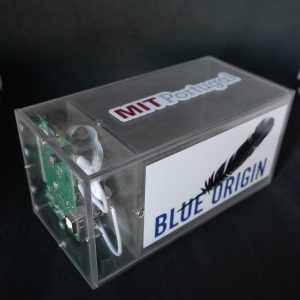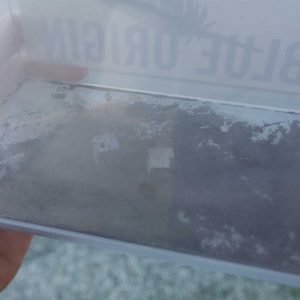MIT Portugal + Blue Origin student payload competition – MiFiRE update
The MiFiRE experiment was selected amongst 5 competing proposals in a contest launched by MIT Portugal in January 2020 which partnered with Blue Origin to include a nano-experiment on the New Shepard.
The experiment was designed with the aim of better understanding the initial stages of planetary formation. The fundamental and embryonic question is to contribute to the study of how the mineral and rock particles, which do not have enough mass for the gravitational force to be influential, can then aggregate through electrostatic forces.
The team will use a JSC-1 lunar regolith simulant, one cube of cut basic igneous rock and one cube of cut metallic meteorite, placed in a small payload. A video imaging system will film the whole free float using small HD cameras, with the goal of detecting the different electrostatic relations of free floating regolith and clasts.
Experiment Status :
Currently the experiment payload is almost finished. After testing the box with regolith to assess the level of containment the MiFiRE team is working in a software that simulates the BO capsule control/info feed and they are assessing if the software that will trigger the camera is working.“Certain words in the feed will trigger the camera to start recording. We are working on writing code so it has some sort of fail-safe redundancy” says Rui Moura, faculty mentor.
They are also producing a second payload container in order to have some sort of physical redundancy. One of them will soon be tested on a light aircraft to see if the systems works well under a very short 0g maneuver (2 seconds).


Last year the team was present at the MIT Portugal Annual Conference to share their experience and also at the “X Congresso Jovens Investigadores em Geociências 2020”, in Estremoz (Portugal), where Vítor Martins, the team leader, presented the MiFiRE payload’s hypothesis and objectives.
Their flight will likely occur during the first semester of 2021! Stay tuned for more updates.
